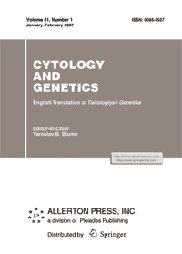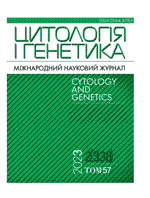Although the specific causes of colorectal cancer (CRC) are not known, a robust DNA repair capacity may decrease the risk of this malignancy. DNA repair capacity may be reduced by alterations of genes involved in DNA repair process. This may affect susceptibility to carcinogenesis. It is hypothesized that single nucleotide polymorphisms (SNPs) of several DNA repair genes may be a risk factor for CRC susceptibility and prognosis. Using PCR–RFLP method, we conducted a case–control study to genotype 291 patients with CRC and 140 healthy individuals to determine variants in the PRKDC, XPD and XRCC1 genes. Results showed that the genotypes of XRCC1 c.580C>T polymorphism were associated with the risk of CRC. Compared with CC, CT (odds ratio (OR) = 5.35, P < 0.001) and CT/TT (OR = 4.74, P < 0.001) as well as T allele (OR = 4.95, P < 0.001) were overrepresented among the CRC patients. Variant genotype CC (OR = 2.37; P = 0.042) and C allele of XPD c.2251A>C (OR = 1.37; P =0.028) polymorphism, enhanced the risk of CRC cases. Compared with GG, positive association was also obtained for all genotypes (GT, TT, GT/TT) of PRKDC rs7003908; 6721G>T polymorphism with CRC. Moreover, T allele of PRKDC demonstrated significant risk for CRC (OR = 5.61; P < 0.001). Besides, significant relevance of the PRKDC rs7003908; 6721G>T variations to smoking as well as XPD c.2251A>C variations to smoking and alcohol consumption in individuals with CRC was observed. Our findings indicated that genetic polymorphisms of PRKDC, XRCC1, XPD genes may influence susceptibility of CRC in the Iranian population.
Keywords: PRKDC, XPD, XRCC1, colorectal cancer, polymorphisms, cancer susceptibility

Full text and supplemented materials
References
1. Salimi, S., Mohammadoo-Khorasani, M., Tabatabai, E., Sandoughi, M., Zakeri, Z., and Naghavi, A., XRCC1 Arg399Gln and Arg194Trp polymorphisms and risk of systemic lupus erythematosus in an Iranian population: a pilot study, Biomed. Res. Int., 2014, vol. 2014.
2. Mirsane, S.A. and Shafagh, S., The relationship between XRCC1 Arg399Gln polymorphism, alcohol consumption and colorectal cancer: one of the alcohol forbidding reasons in Islam, Gene.Cell. Tissue, 2016, vol. 3, e40 607.
3. Huang, Y., Li, X., He, J., Chen, L., et al., Genetic polymorphisms in XRCC1 genes and colorectal cancer susceptibility, World. J. Surg. Oncol., 2015, vol. 13, p. 244. https://doi.org/10.1186/s12957-015-0650-2
4. King, C., Yu, J., Freimuth, R., et al., Interethnic variability of ERCC2 polymorphisms, Pharmacogenomics J., 2005, vol. 5, p. 54.
5. Xiao, M., Shen, Y., Chen, L., et al., The rs7003908 (T> G) polymorphism in the XRCC7 gene and the risk of cancers, Mol. Biol. Rep., 2014, vol. 41, pp. 3577–3582.
6. Trabulus, S., Guven, G.S., Altiparmak, M.R., et al., DNA repair XRCC1 Arg399Gln polymorphism is associated with the risk of development of end-stage renal disease, Mol. Biol. Rep., 2012, vol. 39, pp. 6995–7001.
7. Guo, S., Mao, X., and Ming, L., XRCC1 Arg399Gln polymorphism is not associated with breast cancer in Chinese, Int. J. Clin. Exp. Med., 2015, vol. 8, p. 10429.
8. Yang, H-Y., Yang, S-Y., Shao, F-Y., et al., Updated assessment of the association of the XRCC1 Arg399Gln polymorphism with lung cancer risk in the Chinese population, Asian Pac. J. Cancer Prev., 2015, vol. 16, pp. 495–500.
9. Duarte, M.C., Colombo, J., Rossit, A.R.B., et al., Polymorphisms of DNA repair genes XRCC1 and XRCC3, interaction with environmental exposure and risk of chronic gastritis and gastric cancer, World. J. Gastroenterol., 2005, vol. 11, p. 6593.
10. Abdel-Rahman, S.Z., Soliman, A.S., Bondy, M.L., et al., Inheritance of the 194Trp and the 399Gln variant alleles of the DNA repair gene XRCC1 are associated with increased risk of early-onset colorectal carcinoma in Egypt, Cancer Lett., 2000, vol. 159, pp. 79–86.
11. Olshan, A.F., Watson, M.A., Weissler, M.C., and Bell, D.A., XRCC1 polymorphisms and head and neck cancer, Cancer. Lett., 2002, vol. 178, pp. 181–186.
12. Wu, K-G., He, X-F., Li, Y-H., et al., Association between the XPD/ERCC2 Lys751Gln polymorphism and risk of cancer: evidence from 224 case–control studies, Tumour Biol., 2014, vol. 35, pp. 11 243–11 259.
13. Benhamou, S. and Sarasin, A., ERCC2/XPD gene polymorphisms and cancer risk, Mutagenesis, 2002, vol. 17, pp. 463–469.
14. Qiu, L-X., Yao, L., Zhang, J., et al., XPD Lys751Gln polymorphism and breast cancer susceptibility: a meta-analysis involving 28 709 subjects, Breast Cancer Res. Treat., 2010, vol. 124, pp. 229–235.
15. Smith, G.D. and Egger, M., Meta-analysis of randomised controlled trials, Lancet, 1997, vol. 1350, p. 1182.
16. Mandal, R.K., Kapoor, R., and Mittal, R.D., Polymorphic variants of DNA repair gene XRCC3 and XRCC7 and risk of prostate cancer: a study from North Indian population, DNA Cell Biol., 2010, vol. 29, pp. 669–674.
17. Zhang, J., Wu, X-h., and Gan, Y., Current evidence on the relationship between three polymorphisms in the XRCC7 gene and cancer risk, Mol. Biol. Rep., 2013, vol. 40, pp. 81–86.
18. Mehrzad, J., Mohammaditabr, M., Khafi, A. S., and Erfanian Khorasanian, M., Association of XRCC1 gene polymorphisms with colorectal cancer risk, Int. J. Biosci., 2014, vol. 5, pp. 199–205.
19. Li, Y., Li, S., Wu, Z., Hu, F., et al., Polymorphisms in genes of APE1, PARP1, and XRCC1: risk and prognosis of colorectal cancer in a northeast Chinese population, Med. Oncol., 2013, vol. 30, p. 505.
20. Curtin, K., Samowitz, W.S., Wolff, R.K., et al., Assessing tumor mutations to gain insight into base excision repair sequence polymorphisms and smoking in colon cancer, Cancer Epidemiol. Biomarkers. Prev., 2009, vol. 18, pp. 3384–3388.
21. Jelonek, K., Gdowicz-Kłosok, A., Pietrowska, M., et al., Association between single-nucleotide polymorphisms of selected genes involved in the response to DNA damage and risk of colon, head and neck, and breast cancers in a Polish population, J. Appl. Genet., 2010, vol. 51, pp. 343–352.
22. Stern, M.C., Butler, L.M., Corral, R., et al., Polyunsaturated fatty acids, DNA repair single nucleotide polymorphisms and colorectal cancer in the Singapore Chinese Health Study, J. Nutrigen. Nutrigenom., 2009, vol. 2, pp. 273–279.
23. Saadat, M., and Rabizadeh-Hafshenjani, A., DNA repair gene XRCC7 G6721T variant and susceptibility to colorectal cancer, EJMHG, 2016, vol. 17, pp. 373–376.
24. Rezaei, H., Motovali-Bashi, M., Khodadad, K., et al., Relationship between XPD Lys 751 Gln polymorphism and colorectal cancer risk: a case-control study in a population-based study, Gastroenterol. Hepatol. Bed. Bench., 2013, vol. 6, p. 18.
25. Miller, S., Dykes, D., and Polesky, H., A simple salting out procedure for extracting DNA from human nucleated cells, Nucleic Acids Res., 1988, vol. 16, p. 1215.
26. Li, W-Q., Zhang, L., Ma, J-L., et al., Association between genetic polymorphisms of DNA base excision repair genes and evolution of precancerous gastric lesions in a Chinese population, Carcinogenesis, 2009, vol. 30, pp. 500–505.
27. Kang, S., Sun, H-Y., Zhou, R-M., et al., DNA repair gene associated with clinical outcome of epithelial ovarian cancer treated with platinum-based chemotherapy, APJCP, 2013, vol. 14, pp. 941–946.
28. Zhi, Y., Yu, J., Liu, Y., et al., Interaction between polymorphisms of DNA repair genes significantly modulated bladder cancer risk, Int. J. Med. Med. Sci., 2012, vol. 9, p. 498.
29. Krupa, R., Sliwinski, T., Wisniewska-Jarosinska, M., et al., Polymorphisms in RAD51, XRCC2 and XRCC3 genes of the homologous recombination repair in colorectal cancer–a case control study, Mol. Biol. Rep., 2011, vol. 38, pp. 2849–2854.
30. Cetinkunar, S., Gok, I., Celep, R.B., et al., The effect of polymorphism in DNA repair genes RAD51 and XRCC2 in colorectal cancer in Turkish population, Int. J. Clin. Exp. Med., 2015, vol. 8, p. 2649.
31. Sadat-Larijani, M., Derakhshani, S., Keshavarz-Pakseresht, B., et al., Impact of a missense variation (p.S150R: AGC > AGG) in the XRCC2 gene on susceptibility to colorectal cancer, Clin. Lab., 2018, vol. 64, pp. 233–237.
32. Nissar, S., Sameer, A.S., Rasool, R., et al., Polymorphism of the DNA repair gene XRCC1 (Arg194Trp) and its role in colorectal cancer in Kashmiri population: a case control study, APJCP, 2015, vol. 16, pp. 6385–6390.
33. Muniz-Mendoza, R., Ayala-Madrigal, M., Partida-Perez, M., et al., MLH1 and XRCC1 polymorphisms in Mexican patients with colorectal cancer, Genet. Mol. Res., 2012, vol. 11, pp. 2315–2320.
34. Cheah, P.L., Looi, L.M., Roslani April, C., et al., Lack of correlation between X-ray repair cross-complementing group 1 gene polymorphisms and the susceptibility to coloretal cancer in a Malaysian cohort, Eur. J. Cancer, 2017, vol. 26, pp. 506–510.
35. Sliwinski, T., Krupa, R., Wisniewska-Jarosinska, M., et al., No association between the Arg194Trp and Arg399Gln polymorphisms of the XRCC1 gene and colorectal cancer risk and progression in a Polish population, Exp. Oncol., 2008, vol. 30, pp. 253–254.
36. Skjelbred, C.F., Sæbø, M., Wallin, H., et al., Polymorphisms of the XRCC1, XRCC3 and XPD genes and risk of colorectal adenoma and carcinoma, in a Norwegian cohort: a case control study, BMC Cancer, 2006, vol. 6, p. 67.
37. Bigler, J., Ulrich, C.M., Kawashima, T., et al., DNA repair polymorphisms and risk of colorectal adenomatous or hyperplastic polyps, Cancer Epidemiol. Biomark. Prev., 2005, vol. 14, pp. 2501–2508.
38. Jahantigh, D. and Hosseinzadeh Colagar, A.J.I.j.o.e., XRCC5 VNTR, XRCC6-61C> G, and XRCC7 6721G> T gene polymorphisms associated with male infertility risk: evidences from case-control and in silico studies, Int. J. Endocrinol., 2017, vol. 2017.
39. Mao, D., Zhang, Y., Lu, H., and Fu, X., Association between X-ray repair cross-complementing group 1 Arg194Trp polymorphism and colorectal cancer risk, Tumor. Biol., 2013, vol. 34, pp. 2529–2538.
40. Procopciuc, L.M. and Osian, G., Interaction between lifestyle factors and the XRCC1, XPD, and XRCC3 genetic variations modulates the risk for sporadic colorectal cancer, Rev. Romana. Med. Lab., 2014, vol. 22, pp. 129–141.
41. Datkhile, K., Vhaval, R., Patil, M., et al., Role of genetic polymorphisms in DNA repair genes ((XRCC1, XRCC2, XRCC3, XRCC4, XRCC5, XRCC6, and XRCC7) in head and neck cancer susceptibility in rural Indian population: a hospital based case-control study from south-western Maharashtra, Int. J. Curr. Res., 2016, vol. 8, pp. 25482–25492.
42. Saadat, M. and Ansari-Lari, M., Polymorphism of XRCC1 (at codon 399) and susceptibility to breast cancer, a meta-analysis of the literatures, Breast. Cancer. Res. Treat., 2009, vol. 115, pp. 137–144.
